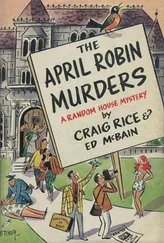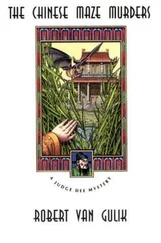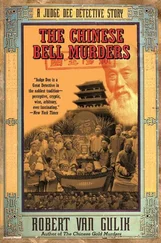David Rotenberg - The Lake Ching murders
Здесь есть возможность читать онлайн «David Rotenberg - The Lake Ching murders» весь текст электронной книги совершенно бесплатно (целиком полную версию без сокращений). В некоторых случаях можно слушать аудио, скачать через торрент в формате fb2 и присутствует краткое содержание. Год выпуска: 2011, Издательство: Schwartz Publishing Pty. Ltd, Жанр: Исторический детектив, на английском языке. Описание произведения, (предисловие) а так же отзывы посетителей доступны на портале библиотеки ЛибКат.
- Название:The Lake Ching murders
- Автор:
- Издательство:Schwartz Publishing Pty. Ltd
- Жанр:
- Год:2011
- ISBN:нет данных
- Рейтинг книги:5 / 5. Голосов: 1
-
Избранное:Добавить в избранное
- Отзывы:
-
Ваша оценка:
- 100
- 1
- 2
- 3
- 4
- 5
The Lake Ching murders: краткое содержание, описание и аннотация
Предлагаем к чтению аннотацию, описание, краткое содержание или предисловие (зависит от того, что написал сам автор книги «The Lake Ching murders»). Если вы не нашли необходимую информацию о книге — напишите в комментариях, мы постараемся отыскать её.
The Lake Ching murders — читать онлайн бесплатно полную книгу (весь текст) целиком
Ниже представлен текст книги, разбитый по страницам. Система сохранения места последней прочитанной страницы, позволяет с удобством читать онлайн бесплатно книгу «The Lake Ching murders», без необходимости каждый раз заново искать на чём Вы остановились. Поставьте закладку, и сможете в любой момент перейти на страницу, на которой закончили чтение.
Интервал:
Закладка:
“In a way. They want the murderers found. But not because they want to see justice done. They want the murderers so they can trace their way from the murderers back to who ordered the murders – the rogue – in Beijing.”
The heaviness in the room deepened. Everyone understood what Fong was saying – that they were just being used in a much bigger game. That no one gave a shit about the dead men. Or maybe even who killed them. Or maybe even the Western money. The only thing Beijing wanted was the path back to the rogue in their midst.
“It would help if we knew who the specialist worked for, Fong,” said Lily.
Fong looked at her. How very much he admired this strong young woman. What a good cop she was. How her loneliness touched him. But Fong hesitated to share what was in his head because he was reasonably sure that the specialist was from yet another Beijing box – perhaps a box of one. Fong wondered if he was ill. If he was dying. If he was alone.
Fong kept it all to himself. “Whoever killed those men would want the foreign press to know about it. They must have contacted them. Lily, you follow that.”
“It’s bound to lead to Xian.”
“No kidding,” Fong said. A lot seems to lead to Xian . . . and to the island.
“So, while Chen’s looking for the hooker and Lily’s investigating the Western press, what are you going to be doing, Fong?” asked the coroner.
“I’m going to a funeral, Grandpa. Want to come?”
The moment the words were out of his mouth, Fong regretted them. He had embarrassed an elder in public. Fong bowed his head slightly. The coroner waited for a beat and then acknowledged the apology. But he had no comeback. He turned from Fong and shuffled out of the dirty factory.
Fong began to follow, but Lily stopped him. “Don’t, Fong,” she said gently. “It must be terrible to be old and know as much about death as he knows.”
Fong looked at her. Sadness, like spring weeds after a storm, blossomed in her eyes.
CHAPTER TWELVE
Fong didn’t want to be late for Hesheng’s funeral rites, but he delayed his departure as long as he could. Even the thought of a boat ride made him queasy. But islands, by their nature, required the crossing of water. Finally he went down to the docks and gingerly boarded the boat that Chen had arranged to take him to the Island of the Half-wits. The boat rocked. They hadn’t even left the dock and Fong already felt sick. But any impulse to step out of the boat and back onto dry land was stopped because so much pointed toward the island – and Xian. “What did the Island of the Halfwits and Xian have in common?” he asked himself. “An isolated island in a big lake and the ancient capital of China’s first emperor. What could they possibly share?” The boatman pushed off and the voyage began. Although the morning had brought a cold wind, Fong found himself quickly slick with sweat.
He took a deep breath and made himself examine the boat. Something, anything to distract himself from the vaulting nausea in his gut.
The vessel was a Chinese-style gondola designed for fishing and carrying cargo. The boat’s owner stood at the stern and moved his oar back and forth to propel and steer the boat. In typical Chinese fashion, why use an oar and a rudder – just lengthen the oar and it can act as both. Also, typically Chinese, all the power needed was generated by human muscle. No motor here, just an angry-faced boatman.
As they got farther from shore, the water on the large lake became more choppy. Fong dearly wished he’d skipped the breakfast porridge. At one point he was sure that he was going to lose the contents of his stomach, but a terse threat from the boatman made it clear that if he did he’d have to clean it up – with his tongue. So Fong kept his mind off his stomach and held on tight.
“How long till we get there?” he asked through gritted teeth.
The boatman shrugged and reiterated his threat to make Fong lick up anything he “left” in the boat. Fong was about to reply that he was a police officer and the man had better remember that, but he was afraid to speak. He kept his peace – and his mouth shut.
Fong turned away and spotted a cormorant fisherman far off to the port side. The old fisher had just released one of his elegant birds and was preparing a second for the day’s work.
When young, Fong, like most Chinese children, had been told stories about the famous fishermen who used trained cormorants rather than hook, bait and rod, but he’d never seen one before.
He noted the lantern stands at the front and back of the fisherman’s boat.
“Do they fish at night?” he managed to ask.
“Night, day, winter, summer – they’re always there,” the boatman answered with a sour sneer. Fong assumed he didn’t like cormorant fishermen. Why should he? He didn’t seem to like anything else. Why should cormorant fishermen escape his venom?
As Fong watched, a mature cormorant hopped up onto the fisherman’s boat and waddled over to the old man. The man’s gnarled fingers reached out and stroked the bird’s long neck – from its beak down to the glinting metal ring at its base. The bird cooed and released a fish from its throat. The plump thing flapped on the seat of the boat for two beats then disappeared to the floor. The fisherman fondled the bird again and fluffed its feathers before committing the animal once more to the lake’s cold waters.
From a distance, the cormorant and the old fisherman appeared to be ideally fitted – two halves of a crossspecies partnership. At least that’s what the children’s stories would have one believe.
“There,” said the boatman in a guttural exclamation from behind Fong. He was pointing to the right.
The island had come up quickly. Fong looked at his watch. They’d been on the lake for just over an hour – a personal best that he had no desire to challenge.
There was no wharf on the Island of the Half-wits, just a rocky beach where several fishing boats rested at cocky angles. One was flipped over and two men were re-gumming the starboard side of the keel with a dark resin. Women sat on some of the larger rocks cleaning and dressing fish. Children walked beside baby cormorants that picked their way carefully among the sharp stones. The whole scene struck Fong as oddly domestic – like Shanghai on Sundays.
To the north along the rock-strewn beach, tendrils of smoke came from the fishermen’s huts. Past them, a gravel path led steeply upward to what Fong guessed was the farmers’ enclave.
As he approached, eyes followed him. Just like in the village west of the Wall. But something was different here and Fong felt it the moment he’d left the shoreline and headed inland. It was as if he’d left China. Not just modern China, but China altogether.
Like every other conquering power, the Communists made deals with local power elites. Over the years, Mao and his successors had reneged on, or renegotiated, a great many of those agreements. But China is a vast country and during the War of Liberation, thousands, perhaps tens of thousands, of virtually autonomous regions formed. On the whole, if a region was small and self-contained, the Communists left it alone. Clearly this island, the Island of the Half-wits, was such a place.
As Fong moved farther inland, the place got somehow older and definitely more foreign. Even the pattern of the farmers’ huts hit an odd chord in him. The only familiar objects were the pails of night soil hanging on either side of every doorway. As he passed them, their scents told Fong how long the material had been ripening.
Old skills never really die – they ferment.
Then he heard the braying of a horn and the slash of a cymbal.
Читать дальшеИнтервал:
Закладка:
Похожие книги на «The Lake Ching murders»
Представляем Вашему вниманию похожие книги на «The Lake Ching murders» списком для выбора. Мы отобрали схожую по названию и смыслу литературу в надежде предоставить читателям больше вариантов отыскать новые, интересные, ещё непрочитанные произведения.
Обсуждение, отзывы о книге «The Lake Ching murders» и просто собственные мнения читателей. Оставьте ваши комментарии, напишите, что Вы думаете о произведении, его смысле или главных героях. Укажите что конкретно понравилось, а что нет, и почему Вы так считаете.












